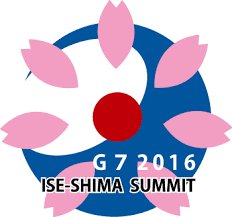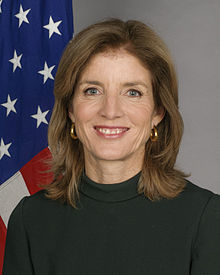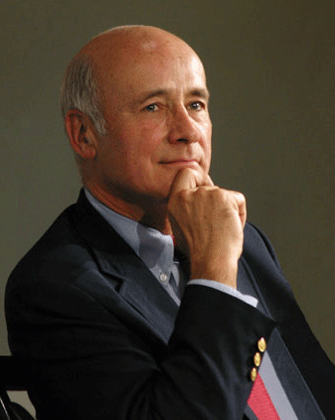
by Admin | Mar 12, 2017 | Highlights
Cyberwarfare is an increasing risk in 2017, as state actors develop and deploy sophisticated cyber capabilities that threaten critical infrastructure and assets such as power, water, financial, information, military, and command and control networks. Over a billion user accounts and highly confidential personal records have been compromised in the past several years. Critical country infrastructure has been commandeered, for example in Iran, North Korea, Estonia, and Ukraine. Boston Global Forum (BGF) has taken note of these developing issues and has made preventing cyberwarfare a focus of its attention in 2017. BGF will develop the BGF -G7 Summit Initiative to support the Italian government, host of the 2017 G7 Summit, May 26-27 in Sicily.

BEIJING, CHINA: Beijingers pose for pictures in front tanks, jets and of one of China’s first nuclear missles, the Dong Feng 1, as they visit the Military Museum 03 November 1999, which showcases the country’s military achievements and weapons. Despite China’s aggressive development of its nuclear capabilities, a more potentially more efficient and lethal threat to Taiwan and the region is the development of its electronic warfare capabilities, including satellite communications and reconnaissance expertise, as well as an electronic magnetic pulse and cyber-war computer hackers. STEPHEN SHAVER/AFP/Getty Images
Preventing cyberwarfare will require full-spectrum operations and an all-of-government approach across international organizations, and states that in the past, or on other issues, may be in competition. Diplomats will seek to make agreements that prevent cyber arms races, minor tit-for-tat strikes, and brinkmanship that could spiral out of control. Offensive cyber preparations need to be curtailed through mutually-beneficial international agreements. All government and industry sectors need to robustly increase defensive cyber capabilities.
As cyber technology develops, the risk of major power shifts in the international system will increase, all else equal. International parties need to be cognizant of the possibility of such power shifts, and take diplomatic and other measures to smooth international relations in what may be a dangerous period of transition. Preventing cyberwarfare will be a critical endeavor in 2017, and should lay the groundwork for decades of peace in the future. Boston Global Forum is at the forefront of analysis of cyberwarfare, and in 2017 will bring critical insights to its prevention and the maintenance of peace in cyberspace.

by Admin | Mar 11, 2017 | Highlights
The Issue of the Year for 2016 is to Build G7 Cyber-Security Norms. Boston Global Forum (BGF) provided input to the agenda for the G7 Ise-Shima Summit.
Global Economy and Trade, Development, and Quality Infrastructure Investment were three themes of the summit. Given the importance of the Internet in all three areas, BGF encouraged the G7 to address the following actions concerning cybersecurity at the summit. These actions have as their goal to raise the general level of security in cyberspace.

The logo of the G7 2016 Ise-Shima Summit, the 42nd G7 summit, held from May 26-27, 2016, on Kashiko Island, Japan.
- Encourage the global adoption of the 2015 G20 cybersecurity norms, which include the
2015 GGE norms by reference, as the Ise-Shima Norms.
- Endorse private and public efforts to improve ethical Internet behavior. The UCLA Global
Citizenship Education Program and the Boston Global Forum’s Ethical Code of Conduct
for Cyber Peace and Security are two such examples.
- Engage vendors of cyberspace technology in the discussion of norms for responsible
state behavior.
- Establish domestic and international centers and mechanisms designed to reduce the
risk of cyber conflict.
- Encourage national cybersecurity experts to voluntarily publicize their best security
practices.
- Recognize that formulation of policy concerning cyberspace technologies requires the
participation, on an equal footing, of respected academics and industry experts on the
technologies in question.
The full recommendations are available here.

by Admin | Jan 27, 2017 | News
Today Boston Global Forum takes a moment to wish Joseph Nye the best of all birthdays. He has contributed his wisdom, effort and presence to make the Boston Global Forum a success, and to guide it on a path towards illuminating the world’s most pressing problems. He is here honored as a truly great member of our Board of Thinkers. We wish him an upcoming year of health,
music, happiness, and continued great thought leadership.

by Admin | Dec 15, 2016 | Global Citizenship Education
“Global Citizenship Education in Cyber Security” Conference
I was pleased to learn from Governor Dukakis that the Boston Global Forum was convening this conference focused on cyber security.
There is a growing recognition of the importance of cyber policy to our national security, foreign policy, economy, values, and way of life. President Obama’s 2016 Presidential Policy Directive 41 on U.S. Cyber Incident Coordination marks a major milestone toward ensuring whole-of-government cooperation in case of significant cyber incidents.
We recognize that cybersecurity threats are not constrained by geographic or institutional boundaries – and thus collaboration and information sharing are essential. For this reason, I congratulate Japan on establishing the Group of Seven ( G- 7) Ise Shima Cyber Group during its leadership of the G- 7 this year. Looking beyond government, our private sector and civil society partners also have a critical role to play in helping to ensure that cyberspace remains open, interoperable, secure, and reliable.
I hope that your discussions at the conference offer constructive ways forward on this important issue.
Caroline Kennedy
United States Ambassador to Japan





